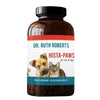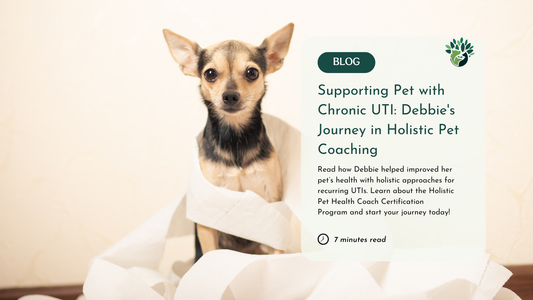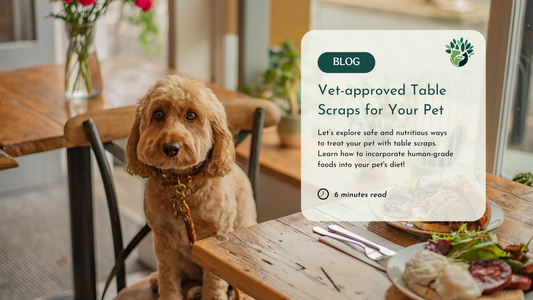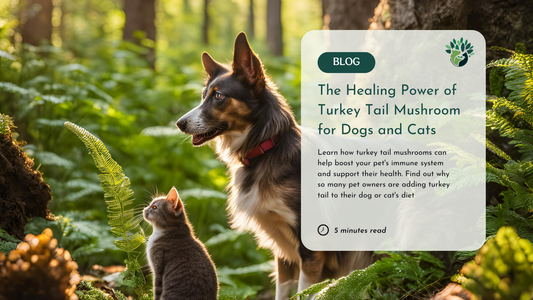What Triggers My pet's Anxiety?
It's the new year and everyone is excited! Your furry friends can probably sense your excitement too! However, some festive foods, loud bangs, and pyrotechnic noises can be downright terrifying for them. Firecrackers, rockets, and sparklers are all part of the New Year's Eve celebrations for many people. Loud noises and flashes of light, on the other hand, generate significant stress in our pets. They frequently experience panic and may exhibit physical symptoms such as diarrhea. These can trigger your pet's anxiety.
Learn natural ways to relieve your pet’s anxiety without using harsh medications.
There are a number of easy things we can do to help our pets relax as we greet the coming new year!
The American Society for the Prevention of Cruelty to Animals (ASPCA) Animal Poison Control Center offers the following tips:
- Never leave alcoholic drinks unattended where pets can reach them. A cocktail or beer is a potential poison for pets. If left low enough where your pets can reach them, a thirsty pet could get into your beverage. Ingestion of alcoholic drinks can result in intoxication, weakness, depression, or coma. Death from respiratory failure is also possible in severe cases.
- Always keep matches and lighter fluids out of your pets’ reach. The danger is not just from heat and smoke. In fact, the ASPCA points out that certain types of matches contain chlorates, which could damage the blood cells resulting in breathing problems – or even kidney disease in the worst cases. On the other hand, lighter fluid can be irritating to the skin. If a pet ingests lighter fluid, it can result in gastrointestinal irritation and central nervous system depression. Furthermore, when lighter fluid is inhaled, aspiration pneumonia and breathing problems could develop.
- Make Sure your pet has an updated ID tag.
- All pets should always wear collars with ID tags with the owner’s updated contact information. Most Indoor pets can become so frightened during the loud noises and fireworks displays that they may become so desperate to escape the noise, and worst case is they may escape through the windows or door screens.
- If your pet does become lost, contact your local animal control and surrounding shelters immediately and follow the rest of our advice for finding your pet.
- If you find a lost pet, either take them to the address on their tag or bring them to a local animal shelter so they can be reunited with their family.
- Keep your pets away from too many treats. Pets need a consistent diet. Any changes can give your pet indigestion and diarrhea especially for older animals who have delicate digestive systems and nutritional requirements. Keep in mind that certain foods that commonly accompany celebrations can be potentially toxic to your animal companions.
Loud, crowded fireworks displays are no fun for pets. Exposure to lit fireworks can potentially result in severe burns and/or trauma to the face and paws of your pets. Also, many types of fireworks contain potentially toxic substances such as potassium nitrate, arsenic, and other heavy metals. Additionally, pets become frightened or disoriented by loud noises.
TIPS FOR PET OWNERS TO AVOID PET'S ANXIETY ATTACKS
- During fireworks, your dog should remain inside the house. To calm your dog, close the blinds and play calming music at a low intensity to help lessen the loudness of the explosions and reduce your dog's nervousness.
- If you know your pet has a panic attack, you should consult your vet a couple of weeks before the celebration. You can also give them something to calm them down quickly such as CBD OIL.
- Anti-stress jackets: Animals have been shown to benefit from so-called "calming vests." Their design applies constant and moderate pressure to the dog's ribs, which helps to reduce anxiety. There are also great tpemf devices like Assisi Loop and Calmer Canine that provide long-term healing to your pet's anxiety and behavioral issues and separation anxiety. Calmer Canine is a highly innovative, gentle, effective, safe, and drug-free treatment system for canine separation anxiety. The Calmer Canine device delivers targeted pulsed electromagnetic field (tPEMF) signals to the area of the brain responsible for causing the symptoms of anxiety.
- If your dog becomes stressed despite taking all precautions, it is critical that they have a safe spot to withdraw to, such as under the bed, behind the sofa, or anywhere they feel most secure. If your dog is anxious, it is critical that you do not leave them alone and that you are available to comfort them if necessary.
- There are various pet anxiety relief supplements on the market that may benefit your dog during these times; however, before purchasing and administering any therapies, you should obtain the opinion of a veterinarian. If your dog's sensitivity to noise is new to them, they should be examined by a veterinarian to ensure that they are healthy and that nothing else is causing the problem.
- At this stressful time, having a human presence can be incredibly reassuring to cats. Excessive emotional attention, even if well-intentioned, may not be beneficial. Accept that your kitty companion does not want to be petted in order to keep it peaceful. Excessive talking to your cat might sometimes be counterproductive. You shouldn't yell at your anxious cat if it pees on the floor instead of the litter box as a caring owner.
- Animals with a deep phobia of explosions and loud noises can be treated with professional assistance from a veterinarian or a certified behaviorist. Overcome Your Pet's Anxiety with the help of a well-designed desensitization and counterconditioning program that is specifically customized to meet their fear. Learn how to treat your pet's anxiety naturally.














